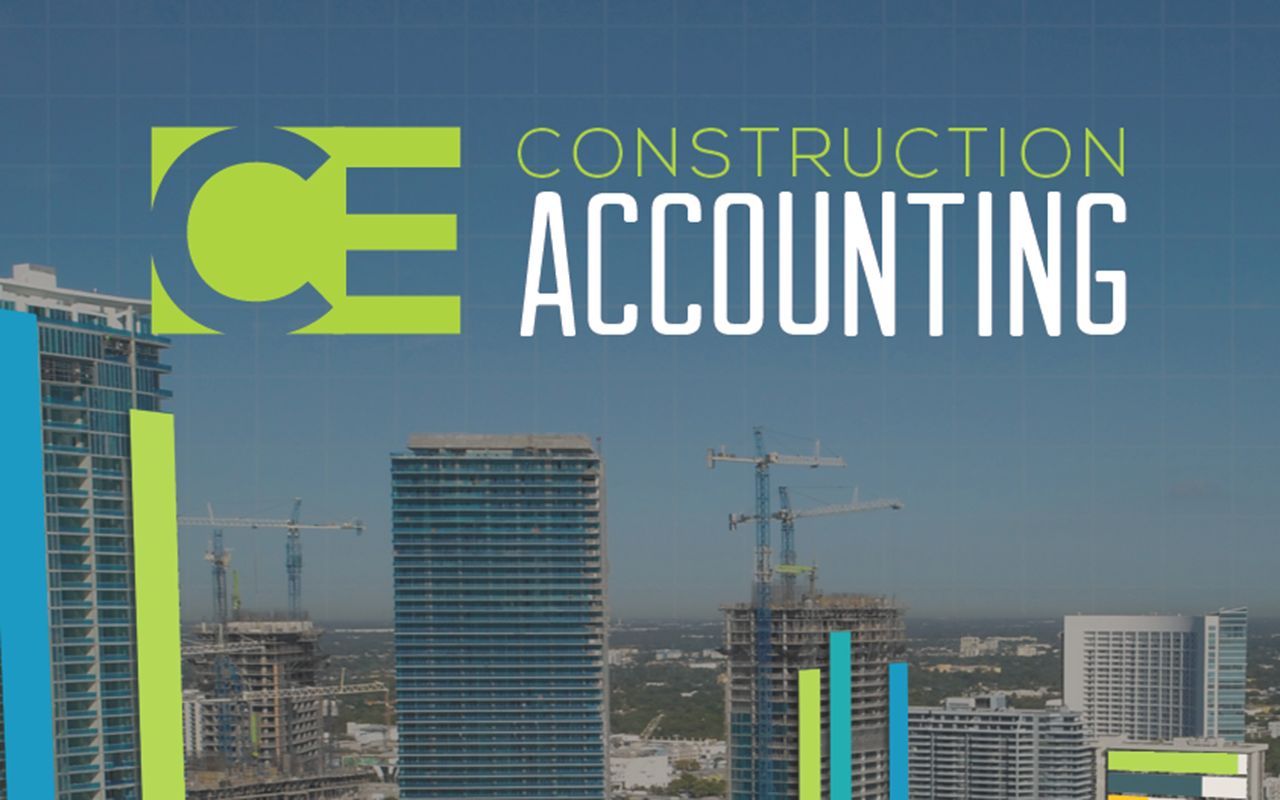What tips do you have for a company looking for a payroll software system?
Mike Ode
President
Payroll4Construction.com
Start from the jobsite. This is where your business is centered, where your costs occur and what your payroll hinges on—so your payroll solution needs to conform to the shape of your jobs, how your rates vary on a single timecard, and how you need to track your labor.
One of the biggest separators for contractors looking for payroll software is Davis-Bacon or prevailing wage work. Many are also working in multiple localities or multiple states. Most are using some kind of job costing.
For those companies, these aren’t secondary nice-to-have features. The ability to complete certified payroll reports or automatically pull in the right rates is what saves them hours upon hours every week.
Starting from the jobsite doesn’t just mean mobile entry, although that may be a part of it. It’s assessing what requirements are dictated first and foremost by your operations. From there, you can make sure you’re evaluating solutions that are built to address those needs.
What should construction companies expect from their CPA team?
Fred Ode
CEO/Chairman
Foundation Software
Expect a beer and a ball game—metaphorically speaking, of course. What I mean is, expect a best friend. About 20 years ago, I went to my first CPA conference, and candidly I can’t say that I “got it.” It wasn’t until my relationships with a few construction CPAs began to develop and I saw firsthand how much they did for our clients that it really clicked.
Contractors have no better ally in business than a construction-specific CPA. Unfortunately, a lot of companies see meetings with a CPA like getting an oil change—just one more item on the to-do list. Or else, they keep CPAs busy with bookkeeping tasks when they can be offering so much more to advise your business.
Construction CPAs aren’t just number wizzes. They’re business experts who should truly understand the financial side of your industry like no one else. So really get to know your construction CPA and what they can do for your business. Every contractor needs a friend on their team.
What capabilities should a company look for when evaluating construction software to maximize profitability and drive growth?
Mark W. Budd
Solutions Consultant
CMiC
An essential capability for any complete construction solution is a comprehensive resource planning tool that works hand-in-hand with employee management and opportunity tracking. Resource planning is an integral component of a construction platform because it gives organizations the power to evaluate their complete labor and equipment pools to ensure all resources are being used to generate maximum profits.
Optimally balancing a company’s labor force enhances project delivery while reducing costs and improving margins. A proactive resource planning tool enables the allocation of resources based on skills, availability and location for greater precision in meeting project needs.
Through this allocation process, contractors can proactively identify labor, skills and training shortages to avoid resource conflicts while delivering projects. The best resource planning tools enable schedulers to easily visualize resource allocations before committing labor and equipment to projects.
What are some key areas of succession planning to consider when thinking about transitioning a business?
Robert Nagle
Principal
Rehmann
When thinking about transitioning your business, two key areas will help you create and implement your transition strategy: ownership succession and management succession.
Ownership succession addresses money and transferring risk. Management succession covers business continuity, people and organizational changes. Many organizations think that ownership and management succession planning should occur at the same time. Though they are closely intertwined, planning may need to be separate to meet the company’s needs.
When planning for ownership succession, think about the value of the business, removing equity without harming the business, compensation for the value and transferring risk. To plan for management succession, think about transferring roles and responsibilities, leadership and direction, decision-making and authority, and organizational changes.
By building a strong plan, owners will receive their value, and companies will thrive in the next chapter.
What key components should a company look for when shopping for construction accounting software?
Ray Rebello
Director of Product Marketing
Acumatica
Most software vendors have similar core functionality. Look beyond features at risk (i.e., what you may lose if you make a bad choice).
The system is not integrated, and data conflicts in different parts of the organization. These silos of information result in inaccurate information and costly decisions.
Your most valuable asset—data—can be stolen. Having data on your premise is like having a sign saying, “my data is here for you.” A SaaS option provides state-of-the-art security.
The vendor is not viable in the long term because it did not invest in new technologies such as cloud and mobile, handicapping your field force.
Also look at value (i.e., the time and money to get what you require).
Can decision-makers create self-service reports and dashboards, or are IT specialists required?
How costly is it to integrate with the other applications your business requires you to use?
Are you charged by users, or can you pay an annual fee based on the resources required?
John Rosch
Regional Sales Manager
Explorer Software
First and foremost, look for a solution that is specifically built for the type of construction work your company performs. You’ll also want to pay attention to how intuitive the user interface feels, as this will ultimately affect implementation and overall adoption. If the software is easy to use, your staff will be more likely to use it. When evaluating your options, make sure the software is feature rich and will help you eliminate a reliance on standalone solutions like Excel.
Even if the product allows you to capture a lot of data, the information isn’t worth much if you don’t have user-friendly reporting tools to help you make sense of the information. Make sure that you can create your own customized reports so that you don’t have to waste time adapting standard templates for your needs.
Potentially the most important thing to remember is that it’s not only software you are buying, but a partnership with your vendor. You’ll want to make sure that they are responsive to your problems and have a willingness to tackle any challenges that may arise.
What are the benefits of job costing and how can companies train staff to do it better?
Rick DeLand
Vice President
JOBPOWER Software
Going without job costing is like driving a truck without a dashboard. You may be able to guess when you are running out of fuel or need to add oil—you can even use a spreadsheet to try to predict it—but chances are it is not going to work out too well.
With today’s job cost/accounting systems, everything is built to work together. Estimating, job budgets, subcontracts, purchasing, change orders and payroll work in unison to maintain accurate job cost for projects.
With budget versus actual, you know where you stand profit wise on your jobs in real time. Job cost accounting puts you in control of your profit, guiding you to make better decisions along the way.
With the right software in place, your staff can easily learn to adhere to construction accounting principles. With today’s best-in-class construction software, they can be trained in no time to handle and understand job cost accounting. Utilizing standard cost categories along with job IDs becomes second nature.
The benefit of accurate job costing is well worth the cost and effort.
Which accounting practices can help prevent fraud?
Larry May
Partner
Carr, Riggs & Ingram
In a day when automation, direct deposits, electronic bill pay, wireless transfers and segregation of duties are still a vital part of preventing fraud within an organization, no one person should be able to control all pieces of a transaction. This includes placing orders, receiving and entering invoices into the general ledger, and initiating payments.
By breaking transactions into separate fragments across varying employees, you are more likely to prevent fraud.
Management also should review vendor lists for irregularities, such as similarly named companies, vendors with the same addresses as employees or nonexistent companies.
Audits of company credit card usage, as well as reviews of payments to vendors to ensure employees are not paying personal bills with company funds, should be implemented.
Additionally, with the adoption of direct deposit, it’s important for an organization to examine employee files for duplicate addresses, Social Security numbers and proper pay periods.
Jack Callahan
Partner, Construction Industry Leader
CohnReznick
Opportunities to be victimized by fraud in today’s construction industry expands daily. As a construction executive, you must be alert. From high technology and cyber breaches to old-school theft of materials or padding time, those inclined to fraud will find ways.
Today, an external cybersecurity assessment is a necessity. The impact on operations and ability to infect a client through cyber penetration can be devastating. Assessing IT systems and identifying vulnerabilities is critical. System and penetration tests will help build critical security.
Also, don’t let down your guard down on more familiar fraud schemes. Have secure wire transfer procedures with limited authorization. Maintain appropriate segregation of duties and perform periodic oversight. Be sure to secure physical checks. Pick up the mail, review bank statements, take the field time sheets and count heads. Examine expense reimbursements.
Take a necessary step back from your busy schedule and give a hard look. Let those in your organization know you take fraud seriously, and be prepared to take preventative actions.
Are there ways to simplify Davis-Bacon Act compliance issues?
Woody Chamberlain
President
eMars Inc.
The Davis-Bacon Act of 1931 stipulates that construction companies doing business with the government pay their employees the prevailing wage established by the Department of Labor. This prevailing wage concerns all employees and their various pay levels, including overtime, vacation and holiday pay. If the correct wage is not paid, executives may pay stiff fines, be debarred or serve jail time.
Construction companies understand that their weekly payroll must be 100 percent correct and in compliance with the Davis-Bacon Act’s more than 30 compliance regulations. Manual checking and insertion of changes regarding an employee status are costly, labor intensive and nerve racking for financial officers who are responsible for all omissions and deletions.
There is an answer to the fallible manual submission of employee payroll information. Electronic submission and automatic verification of employee payroll information is now available.
Payrolls can be completed in less than 10 minutes. Eighty percent savings of time and money are easily obtainable. Submission errors are instantly flagged. Restitution is calculated automatically. All employee information is encrypted.






